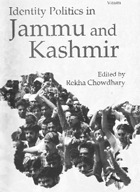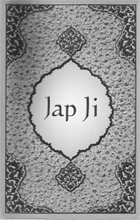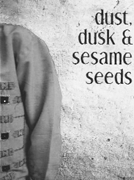|
SHORT TAKES
Unravelling the politics of identity
Reviewed by Randeep Wadehra
Identity Politics in Jammu and Kashmir
ed by Rekha Chowdhary.
Vitasta. Pages: x+470. Rs. 695
 Like
every state and region in India, J&K, too, is stratified on the
basis of caste, religion, ethnicity etc. The reorganisation of states on
the basis of language had ensured that the citizens’ natural
aspiration for identity/sub-national-identity would be fulfilled. To a
substantial extent, this proved to be the case. However, J&K
remained an exception. The fact that it is a border state, with huge
chunks of its territory occupied by Pakistan, only exacerbates the
identity issues. Religion is a dominant factor in its quest for
identity; however, the more than five thousand years old Kashmiri
identity – which has remained largely intact even after the advent of
Islam – has been asserting itself frequently. One of the prime
examples of this is given by Balraj Puri, when he mentions how Kashmiri
Pundits, at one stage, had campaigned for Kashmir’s merger with
Pakistan! And they were not the only ones; even the CPI was against
Kashmir’s merger with India. True, later developments changed the
scenario dramatically. But the undercurrents of Kashmiriyat
remained strong. Like
every state and region in India, J&K, too, is stratified on the
basis of caste, religion, ethnicity etc. The reorganisation of states on
the basis of language had ensured that the citizens’ natural
aspiration for identity/sub-national-identity would be fulfilled. To a
substantial extent, this proved to be the case. However, J&K
remained an exception. The fact that it is a border state, with huge
chunks of its territory occupied by Pakistan, only exacerbates the
identity issues. Religion is a dominant factor in its quest for
identity; however, the more than five thousand years old Kashmiri
identity – which has remained largely intact even after the advent of
Islam – has been asserting itself frequently. One of the prime
examples of this is given by Balraj Puri, when he mentions how Kashmiri
Pundits, at one stage, had campaigned for Kashmir’s merger with
Pakistan! And they were not the only ones; even the CPI was against
Kashmir’s merger with India. True, later developments changed the
scenario dramatically. But the undercurrents of Kashmiriyat
remained strong.
While going through these
well-informed essays one learns how various regional and sub-regional
identities emanating from diverse ethnic, religious and linguistic
groups have come to complicate the identity politics in the state. This,
in turn, has impacted various developmental and administrative
structures in a big way.
This collection of essays
is worth your bookshelf if you are a research scholar, journalist or a
student of the subcontinent’s politics.
Jap Ji: A perspective
by Dr. T. R. Shangari
Radha Soami Satsang,
Beas. Pages: x+530.
Price: not mentioned
 Composed
by Guru Nanak Dev, Japji, which appears at the very beginning of
the Adi Granth, is considered as the most important set of verses
comprising the Mool Mantra (which concisely summarises the three
key elements which are indispensable for the soul in its quest for
fulfillment in God, viz., faith in one God as sole Reality; meditation
on the Name, the sole truth; and the Guru whose grace makes it possible
for the devotee to realize God) followed by thirty eight hymns with a
concluding shloka. The author avers that while compiling the Adi
Granth, Guru Arjan Dev considered the Mool Mantra so
significant as to make it the opening thought on which the entire
structure of the Adi Granth was built. Composed
by Guru Nanak Dev, Japji, which appears at the very beginning of
the Adi Granth, is considered as the most important set of verses
comprising the Mool Mantra (which concisely summarises the three
key elements which are indispensable for the soul in its quest for
fulfillment in God, viz., faith in one God as sole Reality; meditation
on the Name, the sole truth; and the Guru whose grace makes it possible
for the devotee to realize God) followed by thirty eight hymns with a
concluding shloka. The author avers that while compiling the Adi
Granth, Guru Arjan Dev considered the Mool Mantra so
significant as to make it the opening thought on which the entire
structure of the Adi Granth was built.
Written in impeccable
English, this tome – which cites relevant examples from other
religions and cultures – is the best elucidation of Japji Sahib so
far.
Dust, Dusk &
Sesame seeds
by Siddhartha Choudhary
Frog. Pages: 132. Rs. 145
 This
novella is set in a picturesque village, Basera, located at the
foothills of the Sahyadri ranges. Here, Saloni runs a school where
Kancha, Babua etc study. There is a bit of rich-girl-poor-boy friendship
thrown in too. The story dwells upon the manner in which different
characters evolve. This
novella is set in a picturesque village, Basera, located at the
foothills of the Sahyadri ranges. Here, Saloni runs a school where
Kancha, Babua etc study. There is a bit of rich-girl-poor-boy friendship
thrown in too. The story dwells upon the manner in which different
characters evolve.
Books should be able to
make us laugh, cry and/or think. They are expected to satisfy a writer’s
creative urge as much as whet a reader’s appetite for quality read
that is entertaining, thought-provoking, cathartic or, at least,
amusing. Unfortunately, this book is, despite the author’s best
intentions, unable to measure up to any of the readability paradigms.
The prose is stilted, the plot unimaginative, predictable and ordinary
and the characterization is inept. There is an obvious lack of editorial
support here. For instance, take this description on page 29, "The
calm evening breeze was hitting Babua’s face. It was bringing the
scent of the ocean. The evening breeze was bringing with itself
change."
Such narratives remind one
of the late British statesman Arthur Balfour’s words, "He has
only half learned the art of reading who has not added to it the even
more refined accomplishments of skipping and skimming."
|